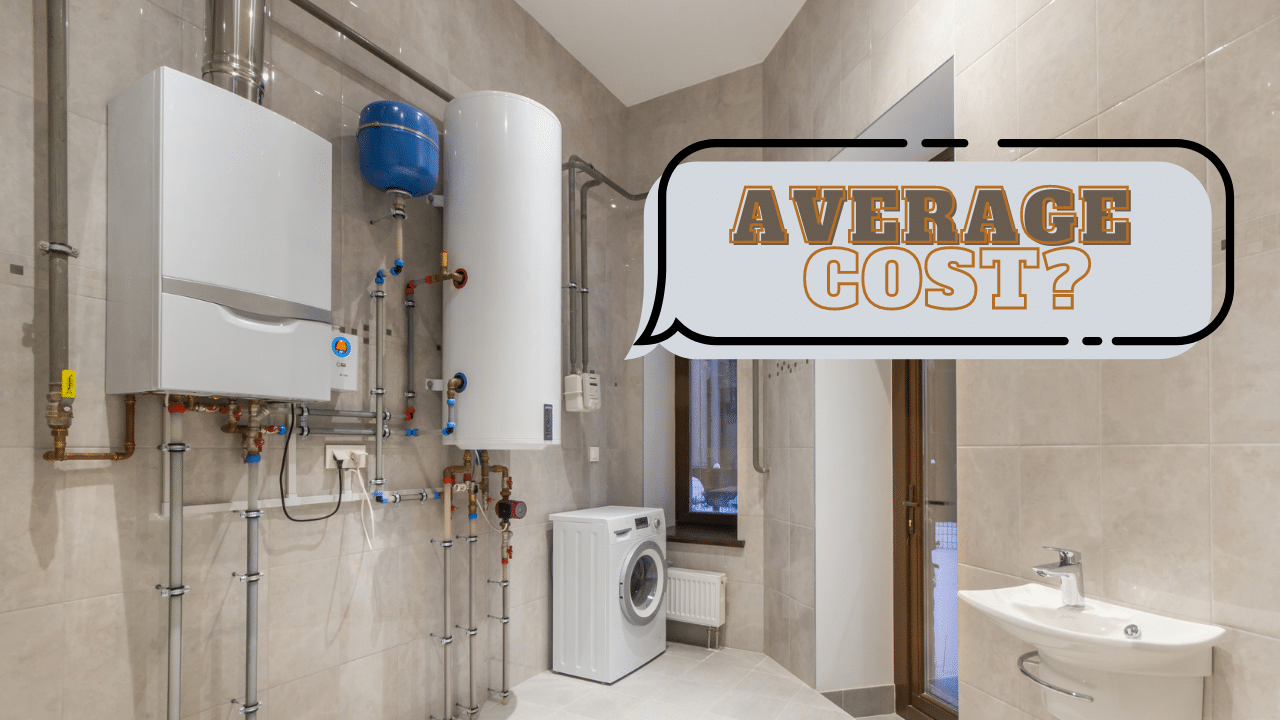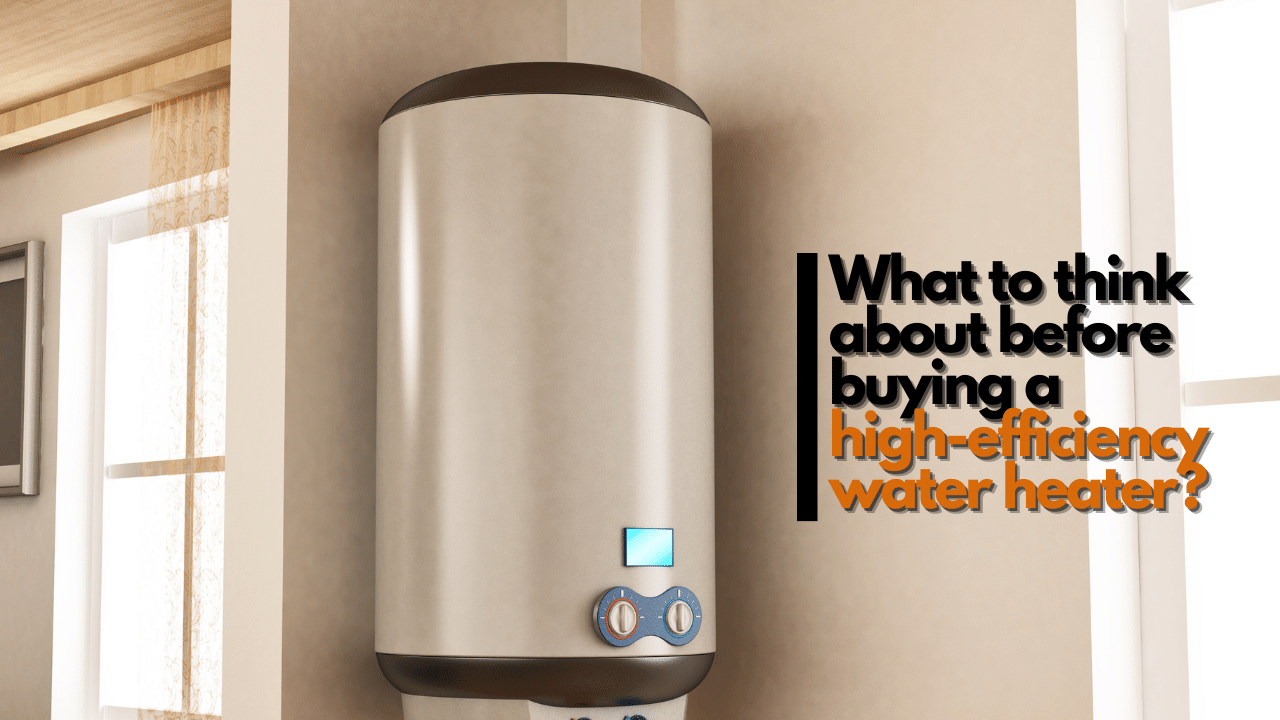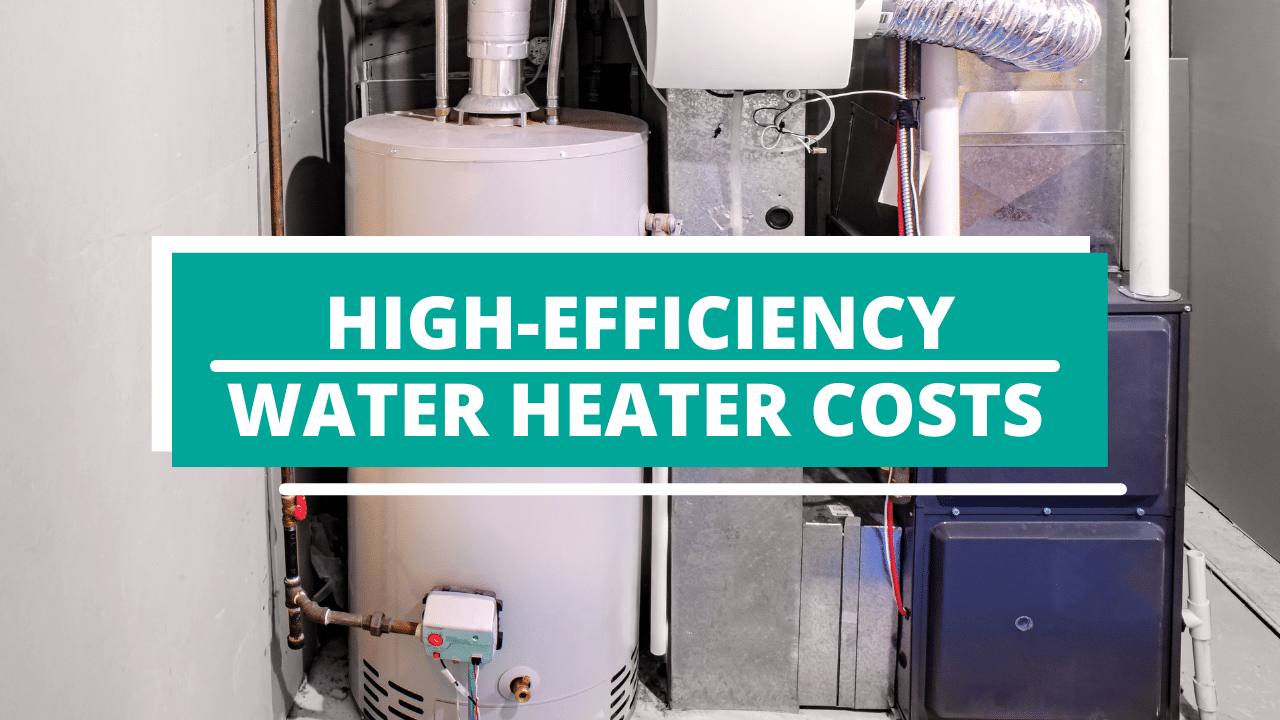Water heaters are an essential part of your home. We all need a hot water heater to maintain a certain level of comfort and convenience in our lives. However, water heaters can take up a big chunk of your utility bill, especially if you are using an out-of-date model. So, if you are looking to update your water heater, you have come to the right place.
In particular, we’ll talk about high-efficiency water heaters here. Regular water heaters are cheaper and easier to install of course. But they can really rack up your monthly bills. Really, you want to invest in a better quality system for your home. This is why we recommend getting a high-efficiency water heater.
We’ll break down the exact costs of this product, as it can get expensive. But, know that you will save a lot of money by getting this type of water heater. Read more to find out how you can cut down your monthly costs with a high-efficiency water heater.
What are High-Efficiency Water Heaters and What are the Benefits?
So, what exactly are high-efficiency water heaters and what do they do for your home? Well, these are not your average water heaters. High-efficiency water heaters conserve energy costs by trapping heat and storing it in your water tank.
In a way, you could say that this product works like a refrigerator. Except, instead of trapping cool air HE devices trap hot air and use it as a way to cut back on regular energy use.
This process of thermal trapping makes high-efficiency water heaters way more efficient in comparison to other models. In fact, this device can be upwards of three times more efficient than regular water heaters. This is because HE devices use heat that is already present, so they don’t have to generate much warmth. In comparison, a normal water heater has to use up a lot of energy to create heat each time you heat up your water.
So, if you are looking to lower your electric bill this is a great device to get. Some experts even estimate that you can save as much as 20% on electricity each month.

Average Cost of High-Efficiency Water Heater
We’ve said that these devices cost a lot of money, but what is the average cost of a high-efficiency water heater? Usually, you are looking at a pretty big price range. Depending on where you live, what water heater you get, and local labor costs, you could pay anywhere from $1000 to $3000. This price does include the cost of labor.
This can seem like a lot of money to put down on a water heater, but you have to remember that these devices save you a ton of money in the long run. High-efficiency water heaters can be 100 percent to even 300 percent more efficient than regular water heaters. This is because they have better insulation, leak detection, and other smart technology.
High-efficiency Water Heater Cost Breakdown
- 1Cost Per Square Foot - Gas water high-efficiency units tend to have a UEF rating of 2.75 to 3.5. What this means is that it will cost you around three hundred dollars per month for the average 2000 sq ft home. In comparison, a regular water heater with a UEF of .65 to .95 will end up costing double this amount, even though it is heating the same square footage.
- 2Cost of Water Heater By Model and Size - Your high-efficiency water heater will make up the largest chunk of the cost for this project. Furthermore, depending on what type of water heater you get the price will go up or down. On average, you will pay anywhere from $1000 to $3000 for the water heater, this is with labor cost.Excluding any labor costs, you could pay anywhere from $600 to $3000 on average. And, the larger and more advanced your heater is, the more money you will pay.
- 3Cost of Labor and Installation - Labor and installation costs will depend on a few different factors. First, you need to consider your location. Then depending on the company you hire, they will charge you a certain amount of money.Looking at the national average, you can expect to pay anywhere from $150 to $800 in total. You will need to hire both an electrician and a plumber. So, keep this in mind when adding up the costs.
What is the Uniform Energy Factor (UEF) of these Models?
Energy efficiency is the big draw with high-efficiency heat. The higher your UEF number the more efficient and cost-effective your unit is. Essentially, this number represents how much energy is used to heat up your water heater and how much money you save.
The higher this number is, the more money you are saving each hour of use. Conventional water heaters will have a UEF of .65 to .95. Which is not very good. On the other hand, the energy-efficient models will have a UEF of 2.75 to 3.5, on average.
What this means is that you will save a lot of money getting a high-efficiency water heater, even if you are spending more on the initial installation and equipment costs.
Do Tankless Water Heaters Save Costs?
There are two types of water heaters you can purchase for your home. One type includes a tank the other version is tankless. As you can imagine, the tankless water heater has no tank but it actually supplies way more hot water to your home.
In general, a regular water heater tank will have a limit to hot water. You will get around thirty to eighty gallons of water stored. These models are not nearly as efficient as tankless models, but most homes contain a water tank.
Usually, the choice is down to cost. Tankless water heaters cost way more money, thousands of dollars more potentially. And, these devices are a lot more difficult to have installed into your property. Of course, you get as much heated water as you want with a tankless water heater, but for many people, the cost is too much.
The beginning cost is a lot of money, but at the end of the day, you will save some money getting a high-efficiency water heater that is tankless. Keep in mind that you only save $100 annually. So, it will take some time for a tankless heater to pay for itself. Still, these models last longer and are more energy-efficient than most water heaters.
Tax Credits for High-Efficiency Water Heaters
In addition to saving money from energy costs, high-efficiency water heaters could also result in a potential tax break. Your water heater will have to comply with certain regulations, but if you purchase an Energy Star water heater, you are guaranteed to get this tax credit as they meet regulations.
To qualify, though, your UEF needs to be above 2.0 if you are using electric heat. Again, most high-efficiency water heaters will meet this requirement. For gas or other energy sources, your UEF needs to be above .82. If you meet this requirement, and you own your own home, you will get a tax credit of 300 dollars.
Should you get a High-Efficiency Water Heater?
The answer to this question will depend on your budget and your current situation. If you have a brand new water heater that you just bought, you might not want to switch to a new high-efficiency model right away.
However, if it is time for you to switch water heaters and you want to save money, we definitely recommend getting a high-efficiency model. Really, it’s not hard to see why these are better. They save you money each month, they are better for the environment, and there are tons of benefits associated with high-efficiency water heaters.

What to Consider before getting a High-Efficiency Water Heater
Your Fuel Source
High-efficiency water heaters are not one size fits all. In fact, you can fuel your water heater with a number of sources. An electric fuel source will be the most energy-efficient and cost-saving. But you can also go with gas, propane, oil, and even solar. The choice is up to you, still, most people end up going with either electric or gas sources.
Size and Capacity of your Tank
You want to carefully think about the size of your water heater, and how many people are going to be using hot water in your home. For instance, if you only have two people in your house, you can get a small fifty-gallon tank.
On the other hand, if you have three adults in your home or two adults and a few children, then a medium sixty-six-gallon tank might be a better choice. Finally, anyone with five or more people in their home should consider getting a large eighty-gallon tank.
Really, the bigger your heater tank is, the better. As you can quickly run out of hot water when many people are using water in your home. (Related: Looking For A New Water Heater: These Are The Best Water Heater Brands Available)
Size of your Home
Water heaters are not massive, but they will need space in your home dedicated to them. This way they can stay fully functional and safe for use. So, we recommend measuring out the area in your home where your water heater is. Doing this will prevent any installation issues down the line. Also, consider that high-efficiency models tend to be on the taller side.
High-Efficiency Water Heater Frequently Asked Questions (FAQs)
How do High-Efficiency Water Heaters compare to Regular Water Heaters?
There are many differences between these two types of water heaters, but let’s talk about the biggest difference first. Regular water heaters just can’t compare when it comes to energy efficiency. High-efficiency water heaters work to save you money on your electric and heating bills every month.
You will end up saving thousands of dollars in the long run, just by having a more efficient water heater. While regular water heaters are cheaper initially, they do add up each month as they waste energy and up your power or gas bill. Other differences to consider include safety and eco-friendliness. HE devices are way more eco-friendly as they take up less power.
On the other hand, regular water heaters eat up a ton of energy and contribute to a larger carbon footprint. In addition, regular water heaters are just not as safe as HE water heaters. So, there is also that to consider when you make this choice.
Will my Water Heater come with a Warranty?
Most water heaters come with a warranty included. For regular water heaters, you can expect a warranty that lasts upward of six years. For high-efficiency water heaters, though, you can get a warranty that lasts you at least ten to twelve years. Your high-efficiency water heaters will last longer than your typical water heater, so this difference in the warranty is to be expected.
What factors impact the price of High-Efficiency Water Heaters and how can I save money?
Price will vary depending on many different factors. We discussed some of these impacts on price in various sections of the post. But we’ll go over everything in more detail in this final section. We’ll also give you some tips to save you money.
To begin with, where you choose to buy the water heater could have a huge effect on the final cost. Some stores offer water heater installation services. But depending on the company you buy from you could be charged more or less for the products and for installation fees.
You could also have a plumber come in and do this for you instead of paying the store you bought the water heater from. This could save you money, but make sure to do some research. Figure out where you can get the best deals for water heaters through google search. Then choose an option that is right for your budget.
Location is also important, as well. Depending on the cost of living in your area, labor costs will be higher or lower. Also, you need to choose when you will have your water heater installed. Towards winter and fall, you can save a ton of money on your water heater installation. These are all things that need to be considered, especially if you are trying to save big.

